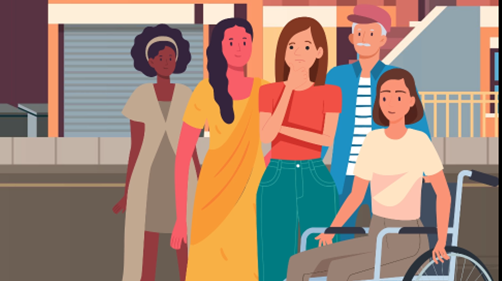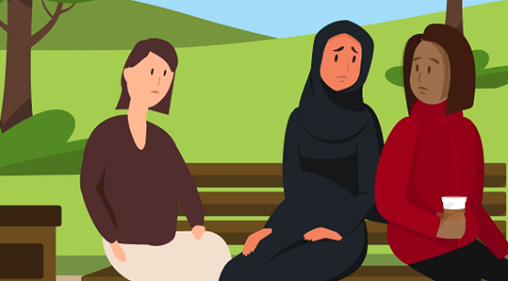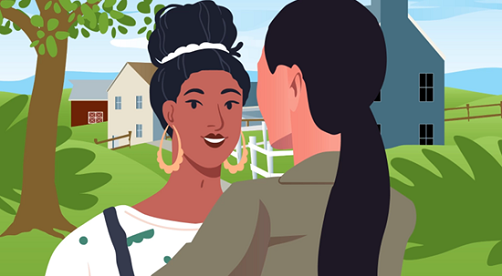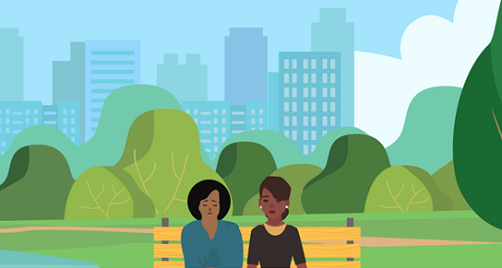Neighbours, Friends, and Families
To talk to someone who can help, call 1-855-225-0220
Or contact a transition house or shelter for abused women in your area: www.thans.ca
Call 211 for resources near you, or to connect with the Men's, Women's, or All Genders helplines.
When one partner is hurting the other, it’s called abuse or domestic violence. It can include physical abuse, sexual abuse, controlling their partner’s money or behaviour, controlling them emotionally, or coercive control.
Coercive control is behaviour by a current or former partner or family member that makes someone fear they will be physically harmed, causes their mental health to decline, or causes the victim such distress that their day-to-day activities are negatively affected.
Neighbours, Friends,and Families is a public education campaign to raise awareness of the signs of domestic violence so that people close to an at-risk woman or an abusive man can help.
The following 3 brochures have been adapted for Nova Scotia:
How to help someone who has an abusive partner (PDF)
You may know someone whose partner is abusing them. They may be your neighbour, friend or family member. It’s hard to know what to do or how to talk about it. You may not know where to start, or you may worry you will make the situation worse.
This brochure gives you some warning signs of abuse, and some ways you can help.
Safety planning for women who are abused (PDF)
A safety plan lays out how you can protect yourself and your children, and how you can make a plan to keep as safe as possible.
This brochure gives you information about how to make a safety plan.
Take one action at a time. Start with the one that is easiest and safest for you.
How to talk to someone who is abusive (PDF)
Anyone can help to stop abuse. Organizations in your community can help people who have been abused as well as people who abuse their partners. It can be hard to know what to do.
This brochure tells you about the warning signs and helps you talk to someone who may be hurting the people who love them.
Neighbours, Friends, and Families Videos
Click on the images below to watch the Neighbours, Friends, and Families videos.
Videos will open in a new window,
We can all help end domestic violence
Warning signs of domestic violence
To talk to someone who can help, call 1-855-225-0220
Or contact a transition house or shelter for abused women in your area: www.thans.ca
Call 211 for resources near you, or to connect with the Men's, Women's, or All Genders helplines.



